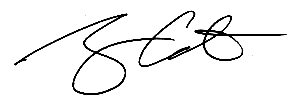

Sometime in 2014 I was asked to
comment on the increasing number of doctors who were getting caught intentionally diagnosing their patients
with cancer to make even more money on their already stratospherically priced orthodox cancer
therapy drugs. One egregious case in particular, that of
Dr. Farid
Fata in Detroit, was quite publicized because of the long duration of the practice, the number of chemotherapy
drugs involved, and the volume of patients who were victimized.

The effects of chemotherapy drugs are horrific enough, and the fact that
they kill healthy cells, don't work (as I mention in "point #1" of
my June, 2016
Ashwin), so frequently kill patients with the most pathetic, brutal end-of-life symptoms,
and are ridiculously priced, only adds to the scandal.

When Alex Jones at Infowars reported on this growing phenomenon
with his article,
More
Doctors Confessing to Intentionally Diagnosing Healthy People with Cancer to Make Money, I knew that the news of this
development was gaining traction. Fellow alternative journalist, Mike Adams, did so, as well, at
NaturalNews with
a report
in January of last year, going so far as to call cancer doctors "slick used car salesmen pretending to be medical professionals."
This brought to mind
Chris Hedges
now-famous quote that includes a statement about doctors destroying health -- wherein my own
caveat is that this move towards the demonic in the most time-honored professions is not confined to the U.S.

It's growing and it's global:


In the early days of Alpha Omega Labs -- back in the early 90's,
we would see occasional
misdiagnoses. This was most evident when it came to skin cancers. The diagnostic capability of
Cansema Black Salve is nearly flawless : if you apply
the product and get an "
escharotic reaction," then you
know there is cancer present. If you get little more than mild irritation, the tissue is "clear."
That is, there is no cancer in the underlying dermis.

Pretty simple.

Occasionally, someone would contact us who indicated that
their dermatologist or other practitioner diagnosed them with skin cancer -- normally, basal,
squamous, or melanoma. When they used Cansema and nothing resulted, we knew that the doctor had
"made a mistake" . . . or least we always attributed it to an "honest mistake." We frequently
advised that this customer get a "second opinion," and when we did we were not surprised to find
that the "second opinion" did not at all agree with the first.

As the years passed, this phenomenon became more common, despite
the introduction of newer and more sophisticated testing techniques. Luckily, in the case of blood
antigen tests, the process of verification became easier because the test results didn't change,
but a different interpretation would lead to a completely different course of action (or inaction, as
the case may be). You didn't need a whole new test. You needed better interpretation.

And yet, the phenomenon persisted, which one medical doctor
attempted to justify by telling me, "Well, we tend to take the side of caution. It's better to
treat someone who may not be in need of therapy yet, then to be guilty of malpractice by allowing
a cancer patient a lack of timely treatment."

What hogwash.

I have been an witness to iatrogenesis ("death by doctoring"),
malpractice, and the brutality of the medical industrial complex
my entire life. I have a 24-year old nephew who was born a perfectly normal child and became
severely autistic in 1994 after a single mercury-laced vaccination. It ruined both his life, and the life
of my brother and sister-in-law. I lost my paternal grandfather to ill-care; my mother, Jeannine, died
from opiate-derived anodyne overdoses that should have never been administered. My uncle, Jack, died an excruciatingly
painful death, as oncologists removed one body part after another in the wake of a diagnosis of
cancer of the jaw, as if you can somehow magically make cancer go away if you just keep removing
more body parts. My biological, paternal grandmother died in 1942 from faulty drugs used to treat her
asthma, twelve years before I was born, and her replacement, my step grandmother, died on an
operating table in 1976 at the hands of an inexperienced surgeon from an exploratory procedure that my
grandfather was told was so simple, she'd be "outta there in a couple days."

My great-grandmother, Christie Christoff, born in 1890, was diagnosed with lung cancer in 1966 at the age of 76.
I was just ten years old. She died shortly thereafter, and several years later I discovered
from my mother that out of eleven siblings in that family, including Christie, every single one of them
was diagnosed with cancer and every single one of them died shortly after receiving conventional treatment.
Just how many of them may have been misdiagnosed to begin with is something I'll never know.

This is modern medicine's legacy: the supreme achievement of
getting people to gullibly believe that the full weight of technology is being used to ease the ills
and discomforts of mankind, when its true achievements are monetary and the motivating factors that
guide its major decisions are nothing short of psychopathic.

When pondering my lifelong experiences of the medical
profession and people's response to it, I am reminded of the "investor letter" by Dr. Michael J. Burry
in the movie,
The Big Short, when he writes, "This business kills the part of life that's
essential -- the part that has nothing to do with business . . . People want an authority to tell
them how to value things, but they choose this authority not based on facts or results. They
choose it because it seems authoritative and familiar . . . and I'm not and never have been familiar."

I began written these brief
Ashwin's in 2001, and only
now do I realize that the corruption has been the most dominant theme --- not because it's something
I like to ponder, but because it's medicine's most defining characteristic. (See
back issues.)

It's yet another reason that when we speak with customers,
we so frequently ask them to do their own research and take responsibility for their own health.
Because you cannot trust anyone in authority to do it for you.
